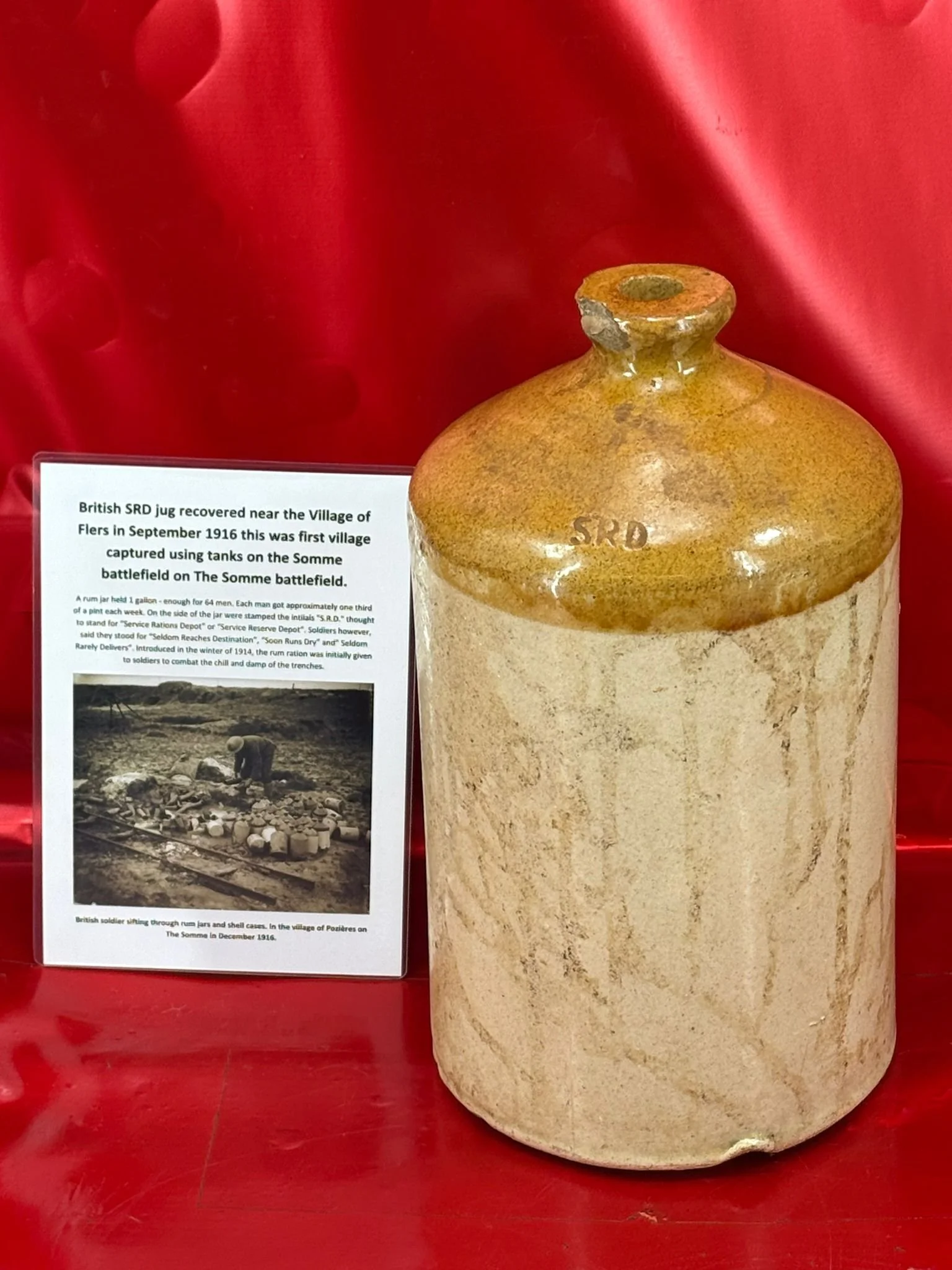 Image 1 of 9
Image 1 of 9

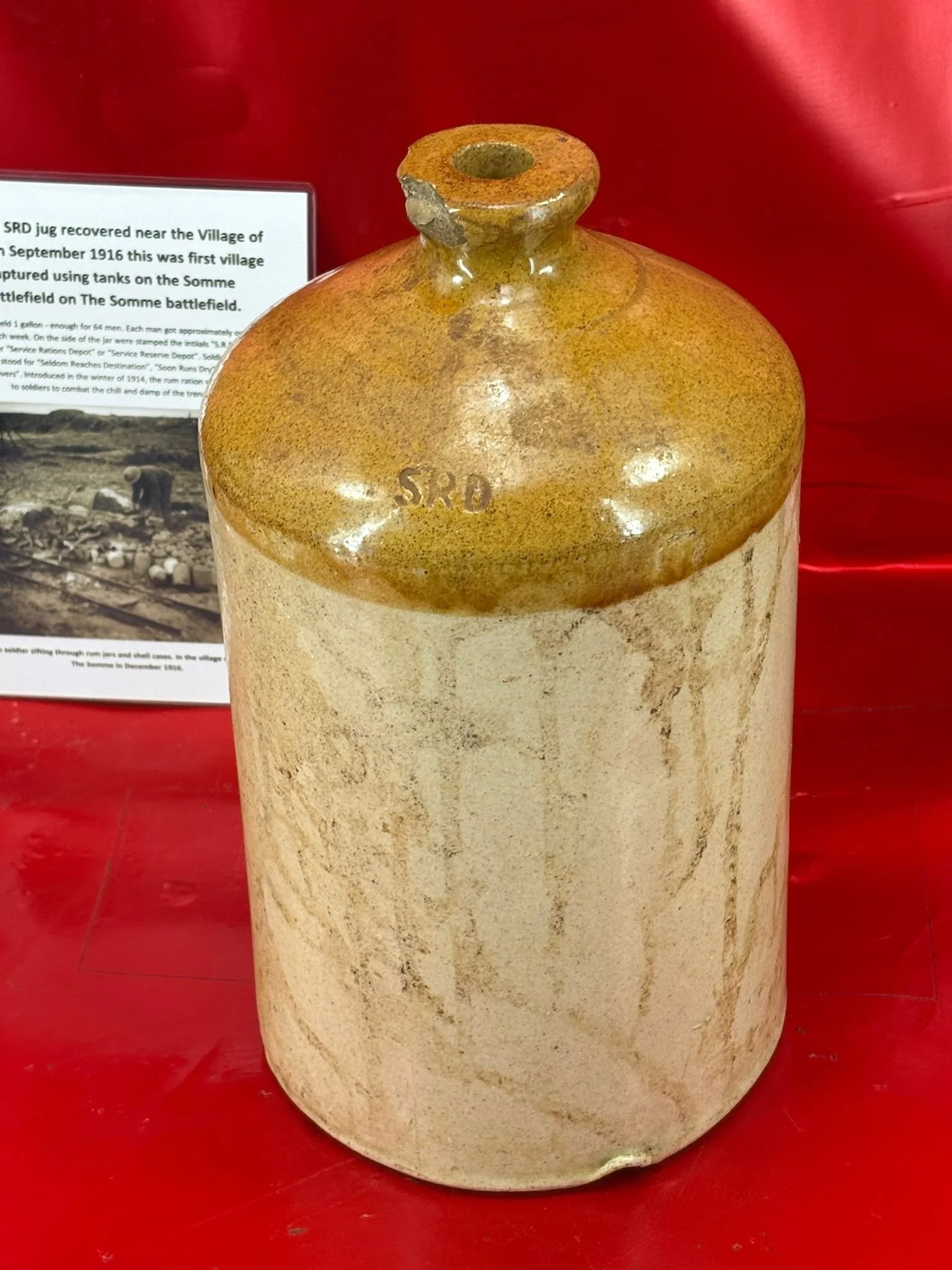 Image 2 of 9
Image 2 of 9

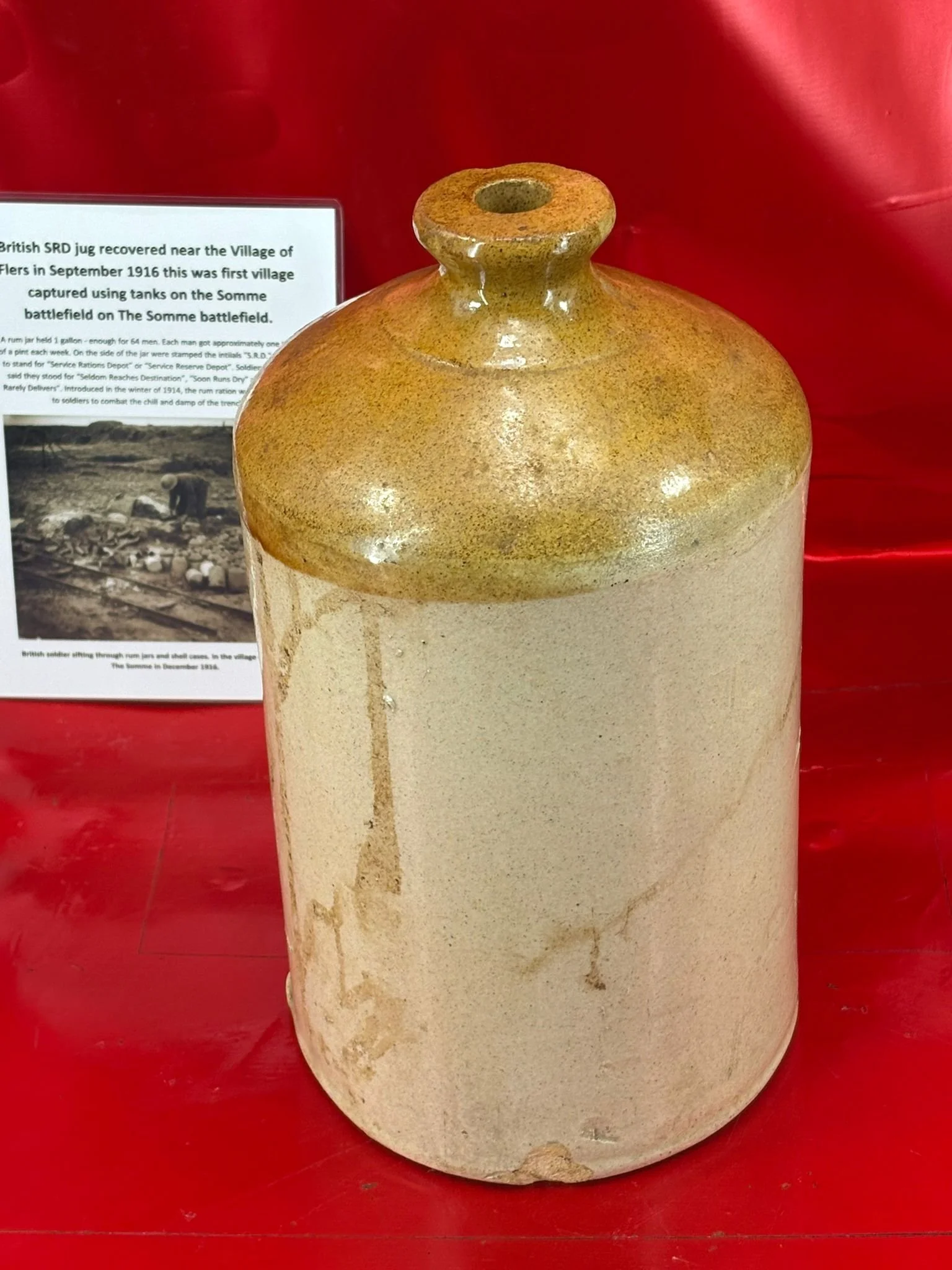 Image 3 of 9
Image 3 of 9

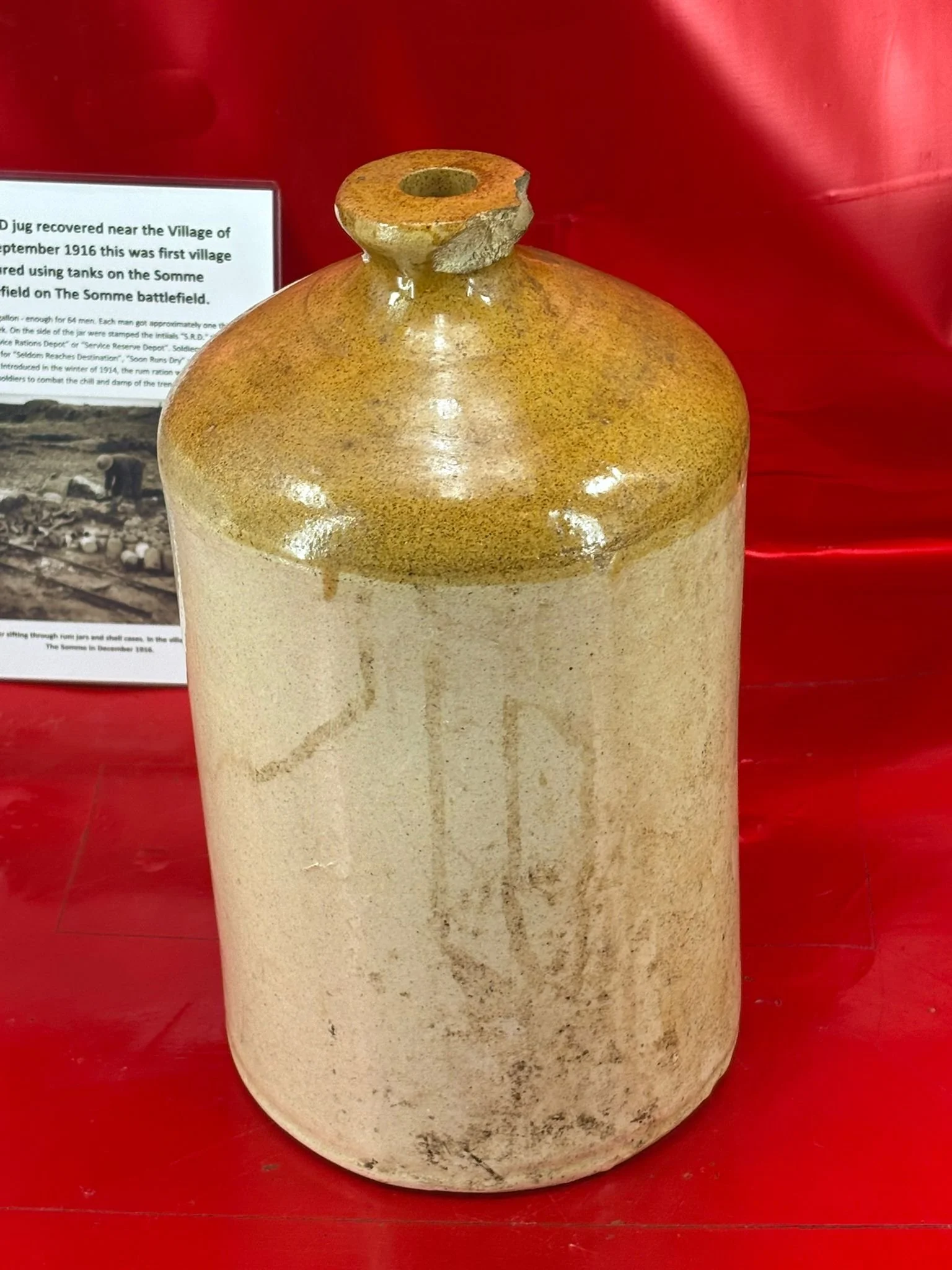 Image 4 of 9
Image 4 of 9

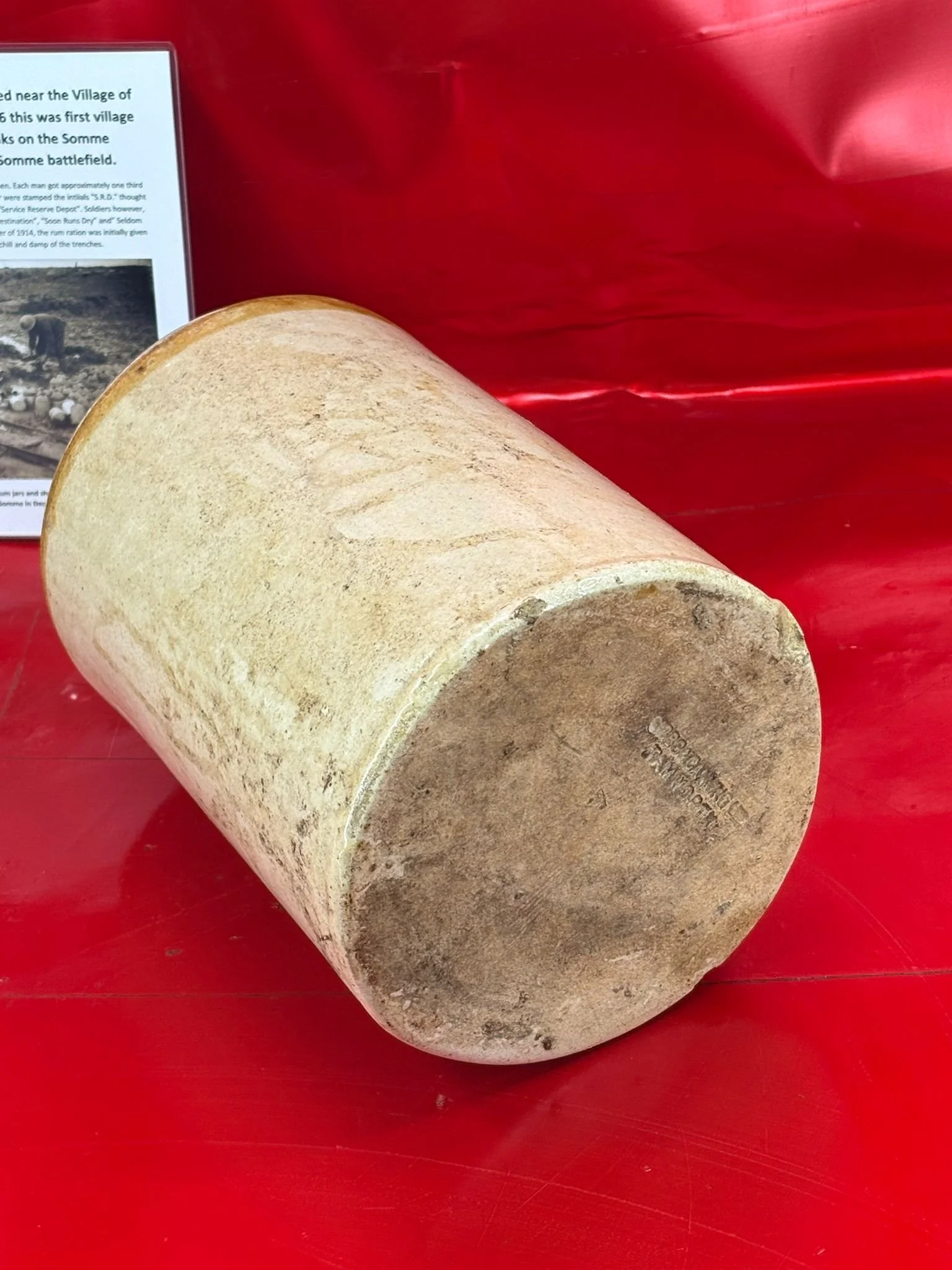 Image 5 of 9
Image 5 of 9

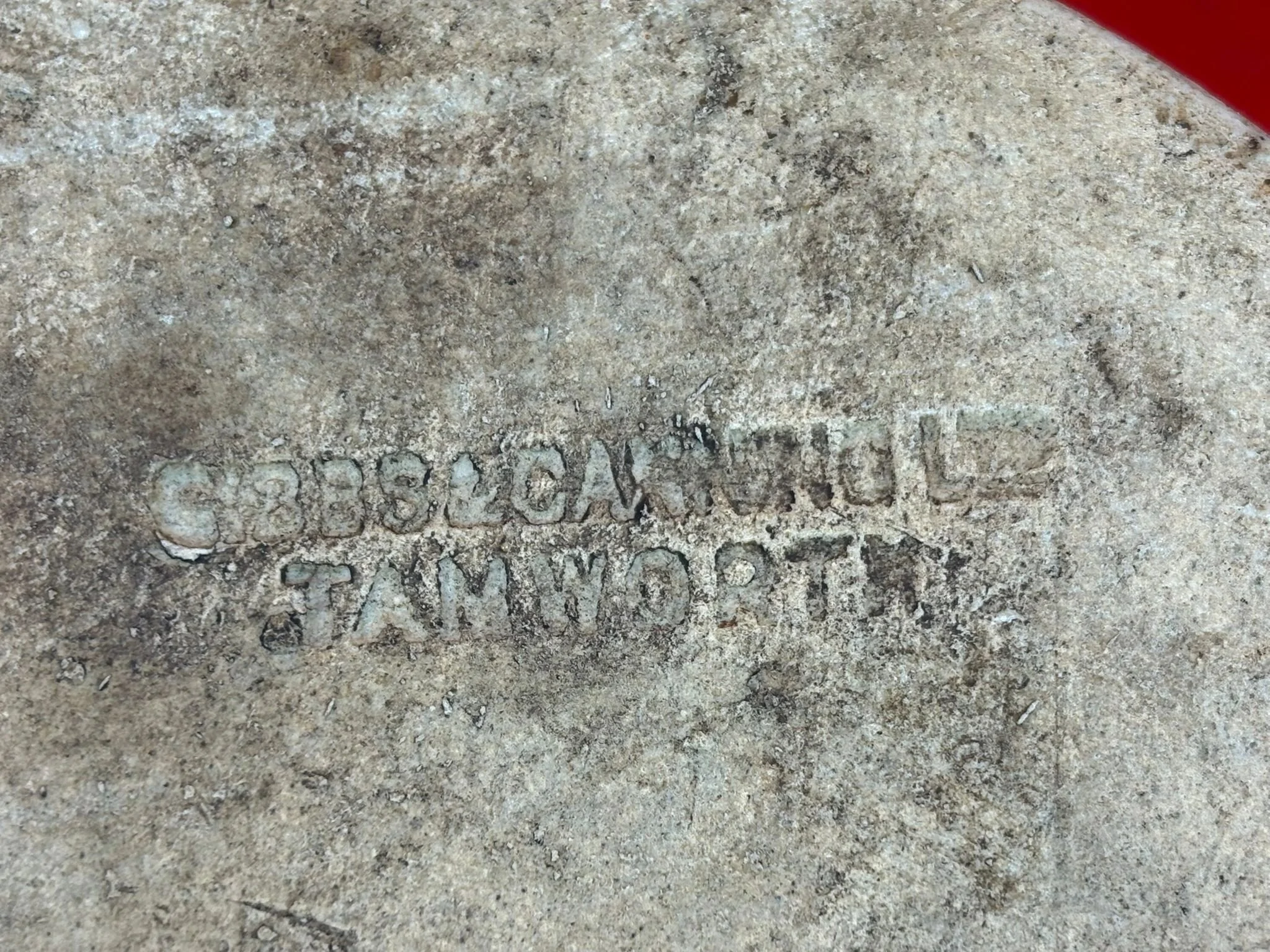 Image 6 of 9
Image 6 of 9

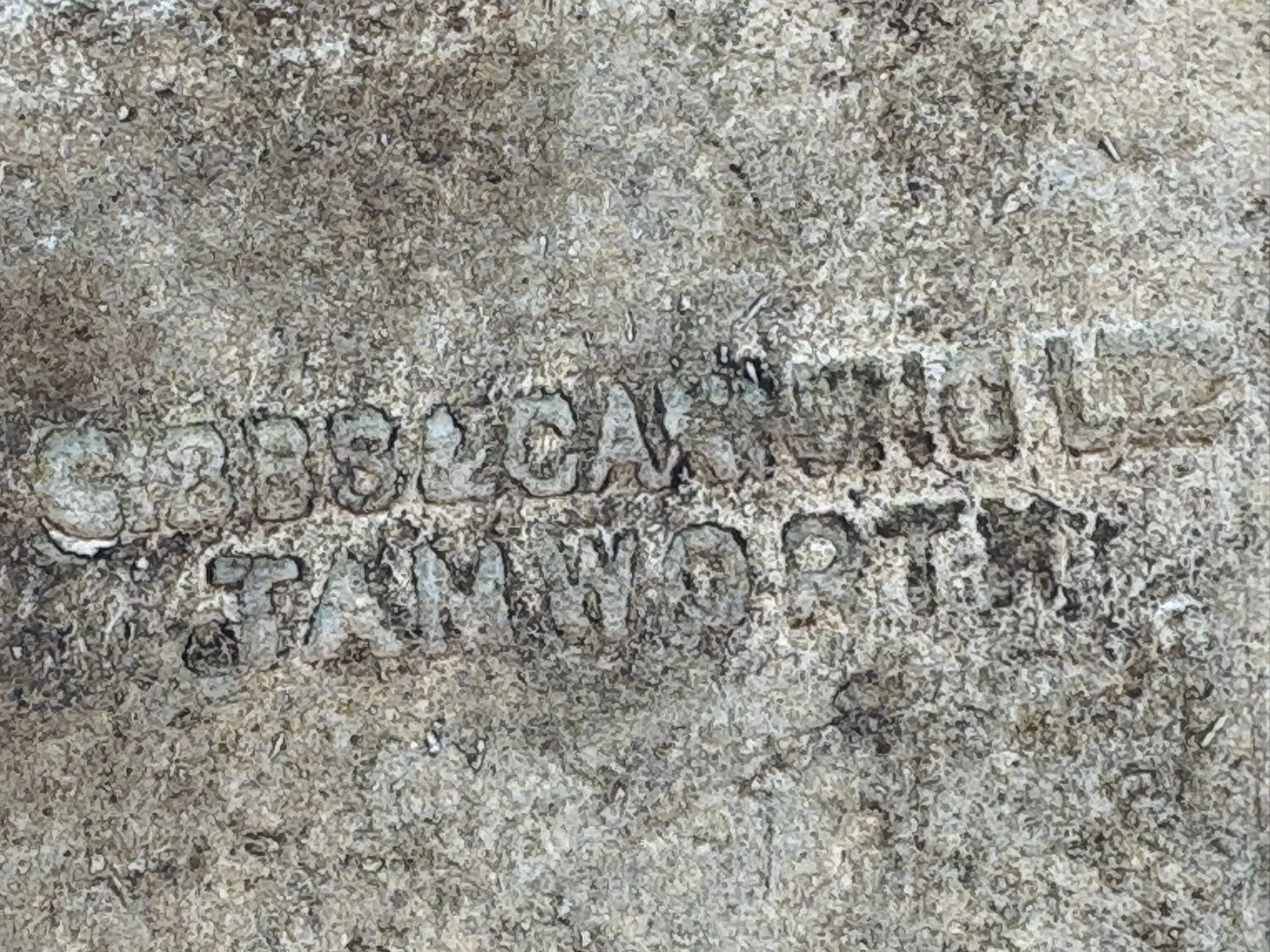 Image 7 of 9
Image 7 of 9

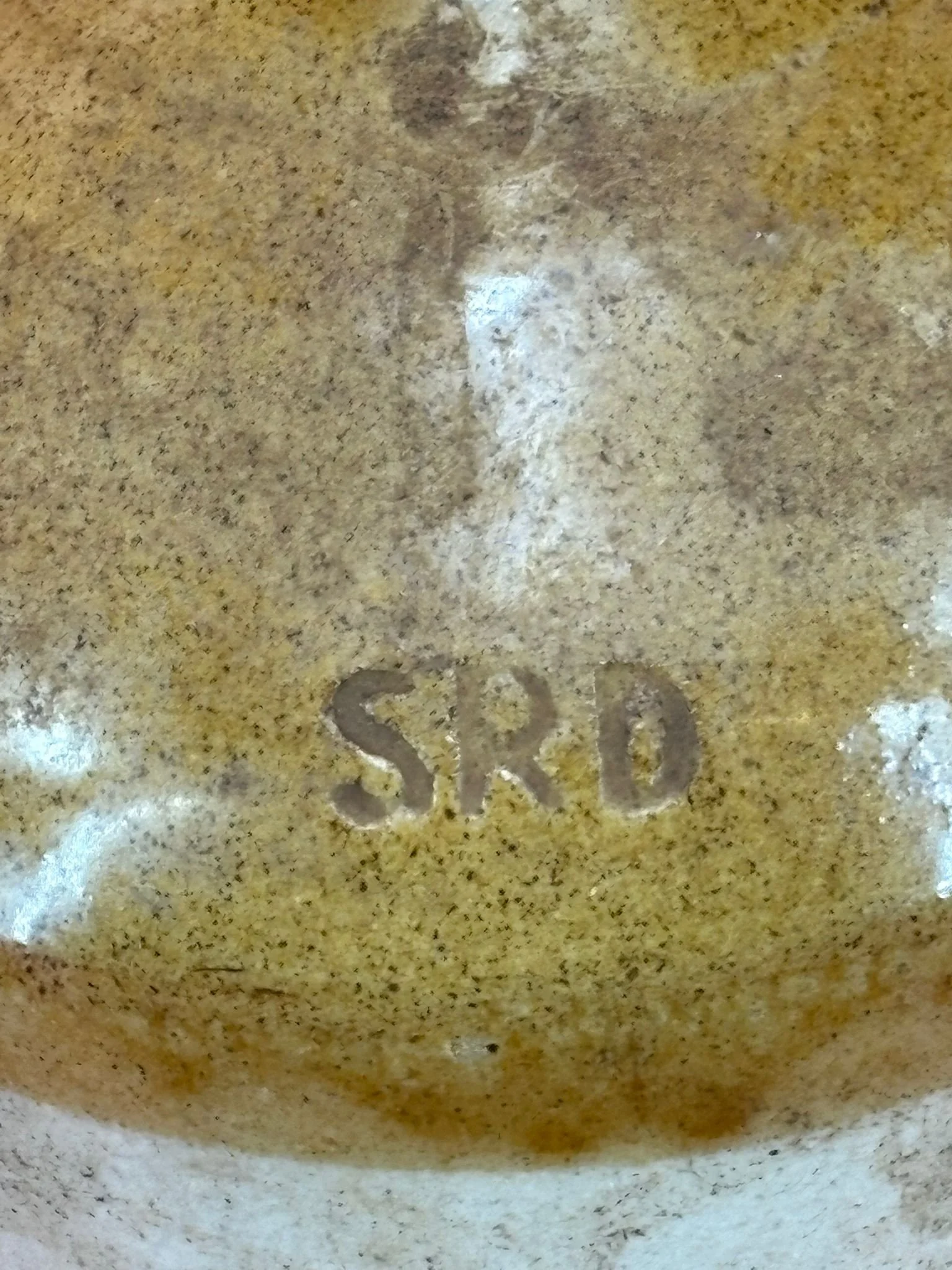 Image 8 of 9
Image 8 of 9

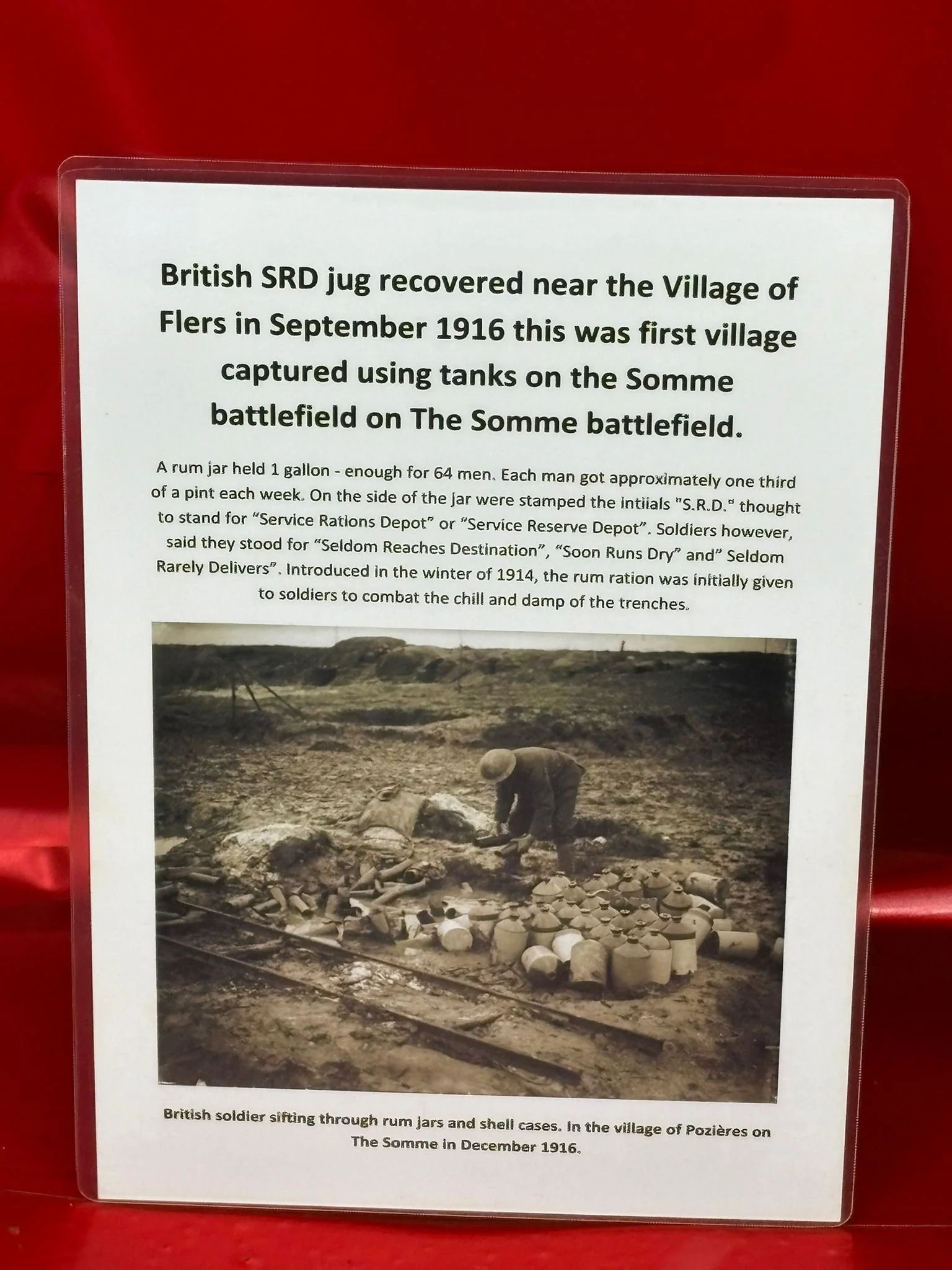 Image 9 of 9
Image 9 of 9










British SRD jug near complete with maker markings recovered near the village of Flers the first village captured using tanks on the Somme battlefield September 1916
This is a unusual find from the battlefield. A British SRD jug which is complete but some damage but nothing bad it is in nice solid condition with its original colours and ink stamp maker marking on the bottom clear to see.The bottle has been very well cleaned perfect for display and a nice bit for any collection. The jug was recovered near the village of Flers the first village captured using tanks on the Somme battlefield September 1916.The jug comes with A5 laminated information card.
A rum jar held 1 gallon - enough for 64 men. Each man got approximately one third of a pint each week. On the side of the jar were stamped the intiials "S.R.D." thought to stand for “Service Rations Depot” or “Service Reserve Depot”. Soldiers however, said they stood for “Seldom Reaches Destination”, “Soon Runs Dry” and” Seldom Rarely Delivers”. Introduced in the winter of 1914, the rum ration was initially given to soldiers to combat the chill and damp of the trenches.
This is a unusual find from the battlefield. A British SRD jug which is complete but some damage but nothing bad it is in nice solid condition with its original colours and ink stamp maker marking on the bottom clear to see.The bottle has been very well cleaned perfect for display and a nice bit for any collection. The jug was recovered near the village of Flers the first village captured using tanks on the Somme battlefield September 1916.The jug comes with A5 laminated information card.
A rum jar held 1 gallon - enough for 64 men. Each man got approximately one third of a pint each week. On the side of the jar were stamped the intiials "S.R.D." thought to stand for “Service Rations Depot” or “Service Reserve Depot”. Soldiers however, said they stood for “Seldom Reaches Destination”, “Soon Runs Dry” and” Seldom Rarely Delivers”. Introduced in the winter of 1914, the rum ration was initially given to soldiers to combat the chill and damp of the trenches.
